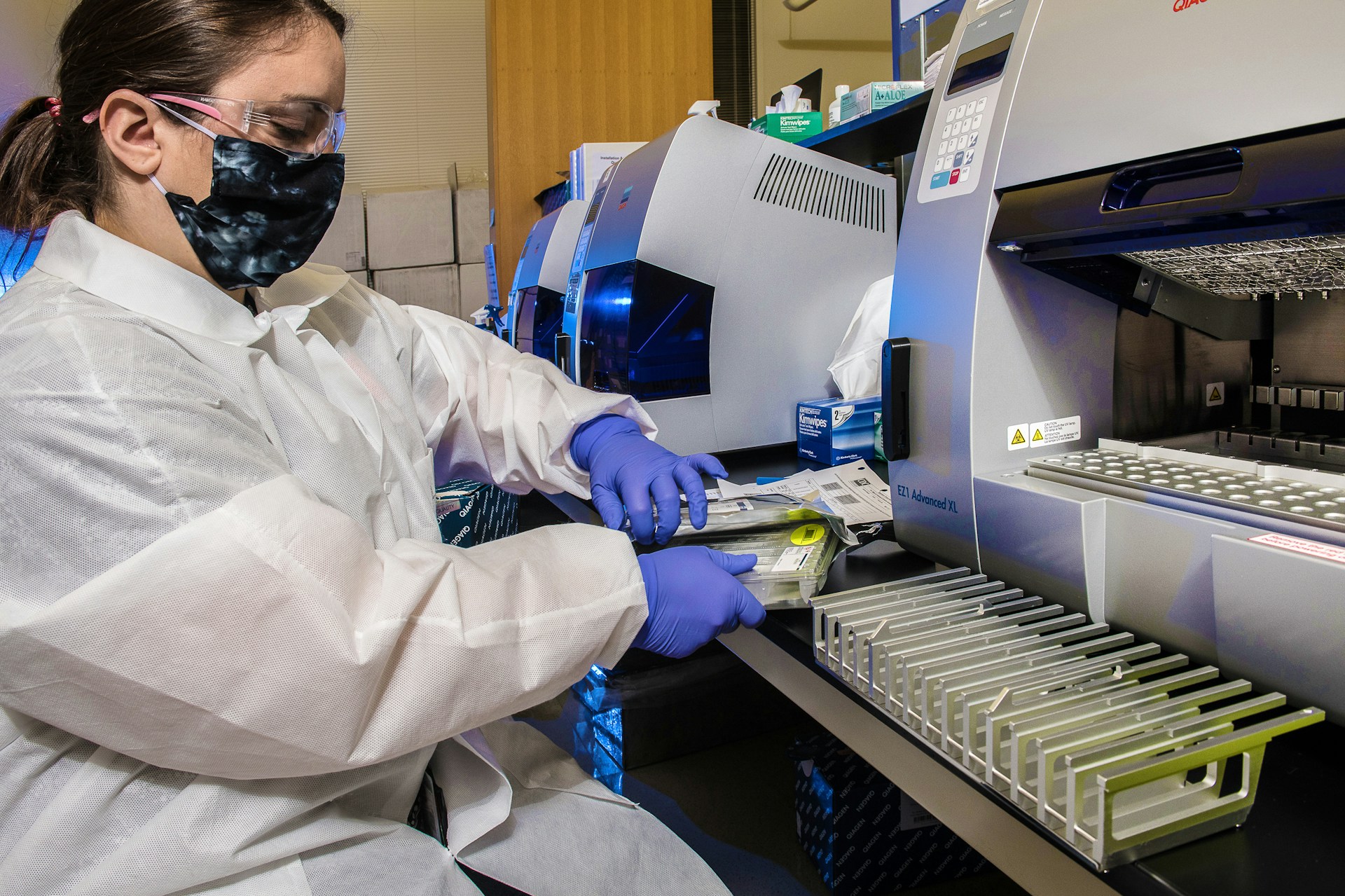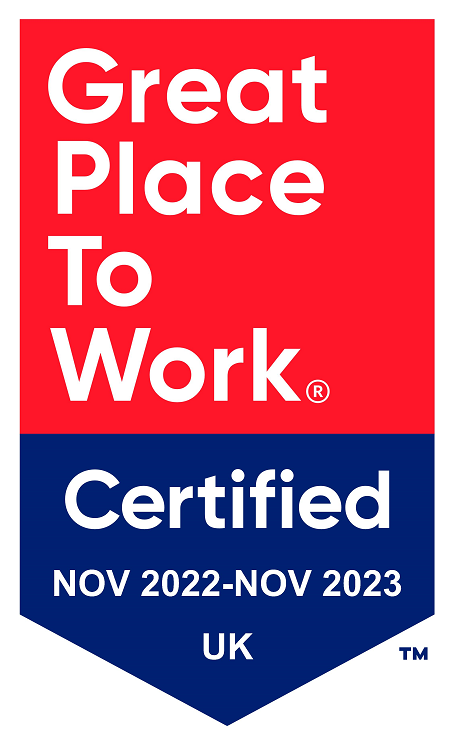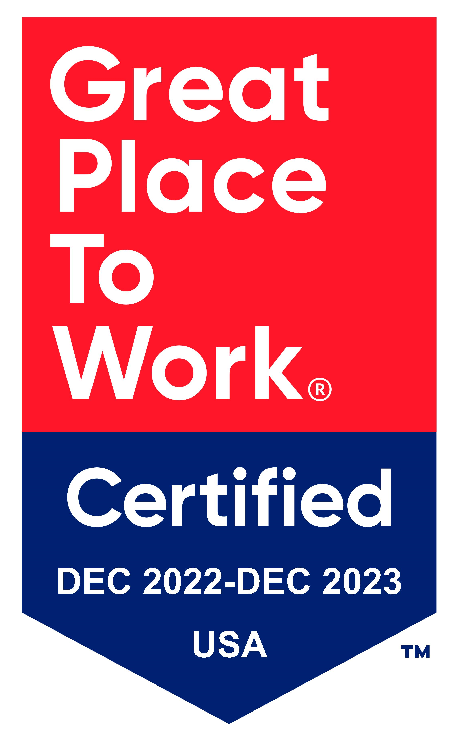Benefits of a Life Sciences Recruitment Agency: Rare Diseases
05 Mar, 20248 minutesIn the extensive life sciences industry, the rare disease sector requires workers who obtain...

In the extensive life sciences industry, the rare disease sector requires workers who obtain specialist skills and dedication. Rare diseases affect only a small number of the population, making them tricky to diagnose and treat. Finding the right candidates with the required knowledge and attributes to address them effectively and positively impact society is tough. As the need for specialised professionals in rare disease research, development, and clinical care grows, the role of partnering with a life sciences recruitment agency becomes increasingly vital.
In this guide, we will explore the key benefits of working with a life sciences recruitment agency and its role in successfully identifying and sourcing suitable candidates equipped to drive innovation within the specialised rare disease sector. We will delve into how working with a life sciences recruitment agency offers outstanding support, as opposed to in-house recruitment.
How can a Life Sciences Recruitment Agency Support Your Hiring?
The crucial role of the life sciences industry and the rare disease sector in enhancing global health and well-being is demonstrated by its life-saving drug development and treatments, support for public health readiness, and advancement of essential medical technology. As the world battles with an ageing population and the emergence of new rare diseases, the importance of recruiting top talent to fulfil pivotal roles within the rare disease sector grows ever more essential.
Research indicates that more than 7000 rare diseases have been documented, affecting approximately 260–440 million individuals worldwide, with a prevalence rate ranging from 3.5% to 5.9%. This statistic underscores the rapid expansion of rare diseases on a global scale, emphasising their adverse effects on international populations. It further highlights the necessity and huge demand for specialised expertise within the field to develop ground-breaking therapies to tackle these illnesses.
While the emergence of new rare diseases and a rising ageing population pose recruitment challenges, the rapid growth of the life sciences industry also contributes to the challenge of surging demand for specialised professionals within the sector.
According to research, 133,000 jobs are expected to be created by 2030 within the life sciences industry. It is no secret that as job opportunities continue to emerge, the demand for suitable candidates to fulfil these roles is at an all-time high. In a competitive market where niche knowledge is essential, businesses are continuously facing talent acquisition and retention difficulties.
Despite these challenges, more businesses are beginning to seek support from life sciences recruitment agencies, like i-Pharm, to streamline their recruitment processes and source top talent within the rare disease sector efficiently.
So, let’s dive into the top 5 benefits of partnering with a life sciences recruitment agency in sourcing expertise within the rare diseases sector:
1. Niche Industry Knowledge
A life sciences recruitment agency offers distinct advantages over in-house recruitment, especially concerning specialised positions such as those in rare diseases. One of the primary benefits lies in the specialised knowledge and extensive network that these agencies possess.
Life sciences recruitment agencies possess teams with profound expertise in the industry, including niche areas like rare diseases. These professionals have an intricate understanding of the specific skill sets, qualifications, and experience necessary for roles within this area. Their deep industry knowledge enables them to effectively assess candidates' suitability for such specialised positions, ensuring that only the most qualified individuals are considered.
Aside from talent acquisition, these agencies frequently offer life sciences companies invaluable industry insights and market analysis as they formulate long-term hiring strategies. By leveraging agency expertise, businesses gain access to up-to-date salary benchmarks, skill requirements, and market dynamics, aiding them in determining their recruitment requirements for the rare diseases sector.
2. Access to Extensive Talent Pools
As previously discussed, numerous Life Sciences businesses face challenges in both attracting and retaining high-quality talent for expertise in rare diseases. However, by harnessing the expertise of a Life Sciences recruitment agency, businesses can tap into an extensive network of potential candidates and expand their talent pool significantly.
Targeted Outreach
Targeted outreach is vital for life sciences recruitment agencies to connect businesses with rare disease talent. By attending industry events and leveraging social media platforms such as LinkedIn and X (formerly known as Twitter), agencies ensure vacancies reach qualified candidates effectively. This approach facilitates direct engagement, creating relationships and new opportunities and driving innovation in rare disease research and treatment.
Passive Candidates
Life sciences agencies extend talent pools in the rare diseases sector by actively engaging with passive candidates. While targeting active candidates is useful, opportunities arise from those not directly seeking job vacancies. Agencies use recruitment strategies such as networking, leveraging referral programs, and direct outreach, as well as utilising social media platforms like LinkedIn to engage with passive candidates and facilitate successful placements within the sector.
Networking
As we briefly mentioned, networking is essential in broadening talent pools in the rare disease sector. Life sciences recruitment agencies network with researchers, clinicians, and patient advocacy groups. By attending industry events and using online platforms, agencies can also engage with professionals who are actively seeking roles within the rare disease sector.
3. Streamlined Hiring Process
Recruitment agencies offer a notable benefit in streamlining the hiring process, which is particularly significant for Life Sciences professionals who dedicate their time to advancing global health through research and development of innovative treatments. Agencies can significantly reduce recruitment procedures by taking care of the repetitive hiring tasks, allowing researchers to focus on cultivating ground-breaking research and treatments.
In fact, recent research suggests that knowing how to optimise the recruitment process can shorten the hiring cycle by 60% while significantly improving quality. A further study indicates that a streamlined application process resulted in a 60% decrease in candidate drop-off, increasing the chances of sourcing higher-quality candidates and highlighting the benefits agencies can offer in attracting and retaining competitive talent.
So, how can life sciences recruitment agencies specifically streamline hiring and staffing processes in the rare disease sector?
- Optimise the application process - Life sciences recruitment agencies can streamline the application process by simplifying forms to focus on relevant, engaging information on essential skills for life sciences jobs in the rare disease sector. Offering multiple application platforms like LinkedIn, employing pre-screening tools such as multiple choice options, and remaining flexible in interview scheduling, such as remote calls, further streamlining the process.
- Access to AI technology - A life sciences recruitment agency can also streamline rare disease recruitment through AI technology. Through advanced candidate sourcing, AI employs Natural Language Processing (NLP) to identify potential candidates with relevant expertise and tailor job postings. AI also facilitates smarter screening and shortlisting by automating skills assessments and utilising predictive analytics for better candidate selection.
- Focus on candidate experience - Life sciences recruitment agencies prioritise clear communication with candidates by providing them with regular updates on the application process, creating seamless turnaround times between application and initial contact. By outlining the interview format and clarifying the next steps of the process, agencies can ensure an efficient rare disease recruitment process, whilst enhancing positive candidate experience, leading to higher talent acquisition and retention rates.
- Targeted sourcing - Partnering with specialised rare disease agencies provides companies access to niche networks and expertise, which is vital for identifying top talent within patient advocacy groups, disease-focused research institutions, and relevant conferences. Specialised rare disease agencies also employ skills-based assessments to evaluate candidates' problem-solving abilities and scientific knowledge relevant to the rare disease sector and embrace employee referrals to source suitable talent directly.

4. Reduced Recruitment Costs
According to research, certain recruitment strategies used by life sciences recruitment agencies for talent acquisition and retention can significantly reduce recruitment costs by up to 75%. While there is a fee for partnering with an agency, the reduction in recruitment costs their services offer far outweighs initial long-term expenses.
Let’s explore how partnering with a life sciences recruitment agency can significantly reduce recruitment fees:
- Reduced admin expenses - By managing candidate sourcing, screening, and communication, life sciences recruitment agencies can streamline hiring processes, saving time and resources for HR teams. Automated tools minimise manual work, while compliance expertise ensures legal tasks are handled efficiently. Candidate onboarding support further alleviates burdens for employers, contributing to cost reduction.
- Reduces risk of bad hires - Through specialised expertise, efficient screening processes and networking, and strategic candidate matching strategies, life sciences recruitment agencies can significantly minimise the risk of bad hires for rare disease roles.
- Targeted recruitment - As we previously mentioned, life sciences recruitment agencies use targeted recruitment methods, such as identifying niche talent pools within rare disease institutions, to significantly reduce the time spent searching for suitable candidates. Of course, the less time spent recruiting, the fewer resources are used, significantly lowering recruitment costs.
- Improves long-term retention - Life sciences recruitment agencies ensure a positive candidate experience, prioritising clear communication and clarifying each stage of the rare disease recruitment process. This significantly increases employee satisfaction and boosts retention rates, reducing turnover rates and saving overall recruitment costs by avoiding the need to hire replacements.
5. Excellent Employer Branding Support
As the demand for specialised professionals within the rare disease sector is at an all-time high, life science companies are facing challenges in talent acquisition due to the highly competitive market.
However, businesses can significantly boost their employer branding strategy by working with a life sciences recruitment agency to attract and retain valuable talent in the rare disease sector. According to a Glassdoor study, 75% of job seekers are more likely to apply for a job if a business actively manages and prioritises its employer brand. This figure highlights the importance of strong employer branding and its impact on encouraging candidates to apply for life sciences jobs.
Here are some examples of how a life science recruitment agency can improve employer branding in the rare disease sector:
- Highlighting impact and mission - Life sciences recruitment agencies create employer branding in the rare disease sector by creating compelling content, such as patient testimonials and success stories, showcasing the company's mission and impact. Agencies can also design targeted social media campaigns to emphasise the opportunity for rare disease specialists to contribute to meaningful work aligned with the company's mission.
- Showcasing expertise - Within content and social media campaigns, a life science recruitment agency will ensure industry awards and business achievements and insightful content pieces are highlighted to portray businesses as experts within the field effectively.
- Ensuring positive candidate experience - By ensuring a strong candidate experience through effective communication and feedback, life sciences recruitment agencies can build a strong employer brand and reputation for life science companies in the rare disease sector, increasing talent acquisition and retention.
To learn more about the recruitment challenges businesses face in the rare disease sector and the strategies to overcome them, discover our insightful guide - Medical Recruitment Challenges in the Rare Diseases Sector.
Final Thoughts: Advantages of a Life Sciences Recruitment Agency
In today's competitive market of rare disease research and treatment, partnering with a life sciences recruitment agency is essential for companies seeking to access top talent efficiently. These agencies possess specialised knowledge and networks specific to the rare disease sector, enabling them to identify candidates with the unique skills and dedication required for success in this niche field. By leveraging their expertise, recruitment agencies streamline the hiring process, reducing the time and resources spent on candidate sourcing and screening.
Life sciences recruitment agencies play a crucial role in enhancing employer branding within the rare disease sector. They highlight companies' contributions to rare disease research and treatment, showcasing their mission-driven culture and impact on patients' lives. Through compelling content, such as patient testimonials and success stories, and targeted social media campaigns, recruitment agencies attract candidates who are passionate about making a difference in the rare disease field, ultimately strengthening the employer's reputation and appeal to top talent.
Partnering with a life sciences recruitment agency also offers significant cost-saving benefits for companies operating in the rare disease sector. These agencies streamline recruitment processes, automate administrative tasks, and utilise AI technology for smarter candidate screening. By reducing the risk of bad hires and improving long-term retention rates, recruitment agencies help companies avoid costly turnover expenses.
The strategic support provided by life sciences recruitment agencies enables companies to effectively navigate the unique challenges of hiring in the rare disease sector and achieve their goals of advancing research and improving patient outcomes.
Searching for an Expert Life Sciences Recruitment Agency?
With our unmatched resources and extensive talent networks, our life sciences recruitment agency can connect your business with top talent to fulfil life sciences jobs in the rare disease sector.
To discover how we can help your business streamline the rare disease recruitment process, contact us today to discuss your requirements.











